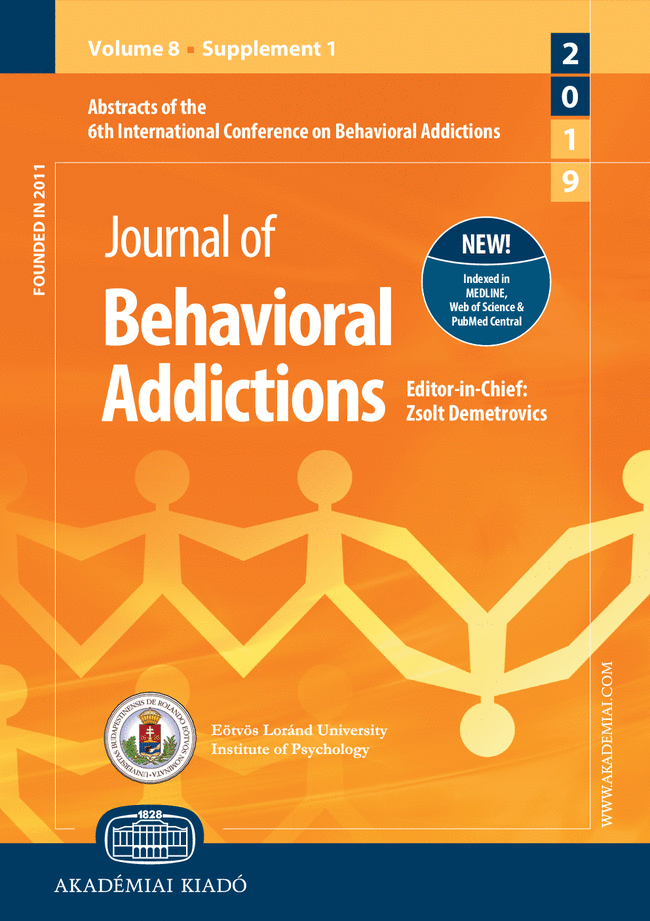Cybersex use and problematic cybersex use among young Swiss men: Associations with sociodemographic, sexual, and psychological factors
Cybersex use and problematic cybersex use among young Swiss men: Associations with sociodemographic, sexual, and psychological factors
Author(s): Joseph Studer, Simon Marmet, Mathias Wicki, Gerhard GmelSubject(s): Behaviorism
Published by: Akadémiai Kiadó
Keywords: cybersex; personality; coping; sociodemographics; sexuality; Cohort Study on Substance-Use Risk Factors
Summary/Abstract: Background and aims. Cybersex use (CU) is highly prevalent in Switzerland’s population, particularly among young men. CU may have negative consequences if it gets out of control. This study estimated prevalence of CU, frequency of CU (FCU), and problematic CU (PCU) and their correlates. Methods. A non-selective sample of young Swiss men (N = 5,332, mean age = 25.45) completed a questionnaire assessing FCU and PCU, sociodemographics (age, linguistic region, and education), sexuality (being in a relationship, number of sexual partners, and sexual orientation), dysfunctional coping (denial, self-distraction, behavioral disengagement, and self-blame), and personality traits (aggression/hostility, sociability, anxiety/neuroticism, and sensation seeking). Associations were tested using hurdle and negative binomial regression models. Results. At least monthly CU was reported by 78.6% of participants. CU was associated positively with post-secondary schooling (vs. primary schooling), German-speaking (vs. French-speaking), homosexuality, bisexuality (vs. heterosexuality), more than one sexual partner (vs. one), dysfunctional coping (except denial), and all personality traits except sociability, but negatively with being in a relationship (vs. not), age, and sociability. FCU was associated positively with homosexuality, bisexuality, no or more than one sexual partner, dysfunctional coping (except denial), and all personality traits except sociability, but negatively with age, being in a relationship, and sociability. PCU was associated positively with bisexuality, four or more sexual partners, dysfunctional coping, and all personality traits except sociability, but negatively with German-speaking and sociability. Discussion and conclusions. CU should be viewed in light of its associations with sociodemographic, sexual, and psychological factors. Healthcare professionals should consider these aspects to adapt their interventions to patients’ needs.
Journal: Journal of Behavioral Addictions
- Issue Year: 8/2019
- Issue No: 4
- Page Range: 794-803
- Page Count: 10
- Language: English

